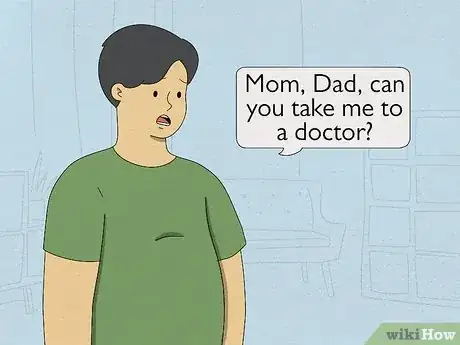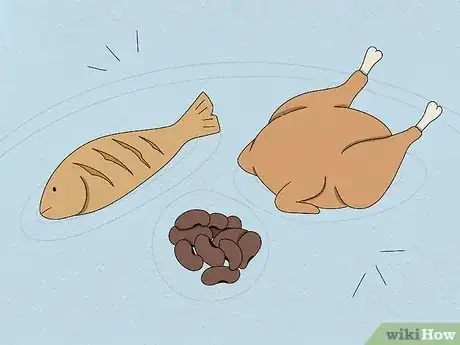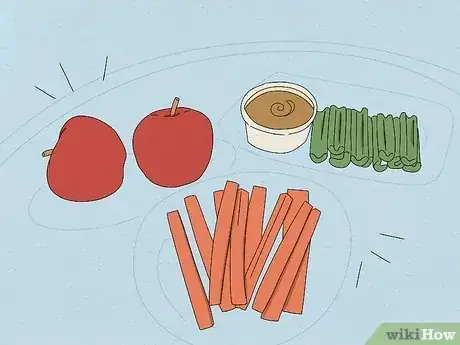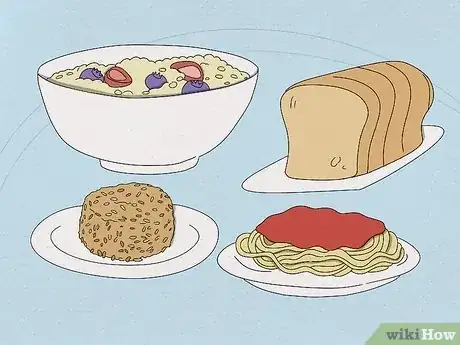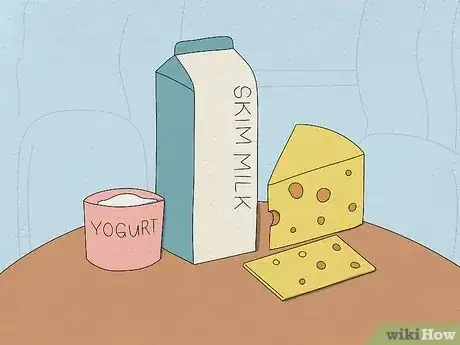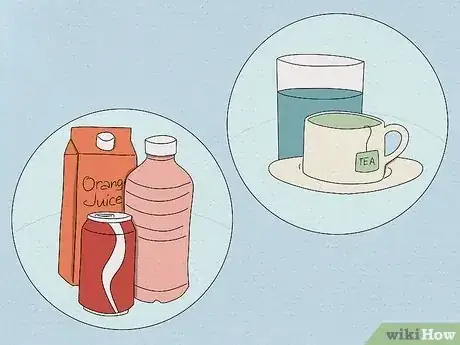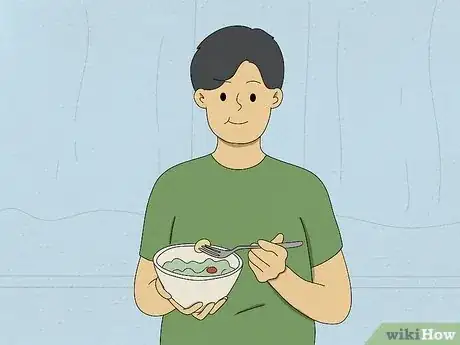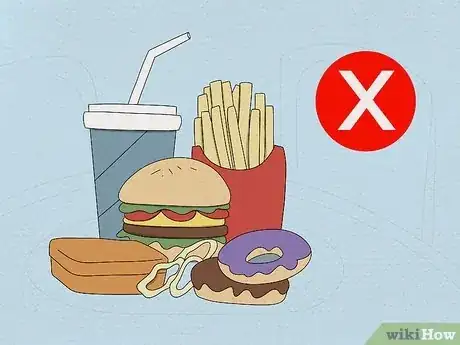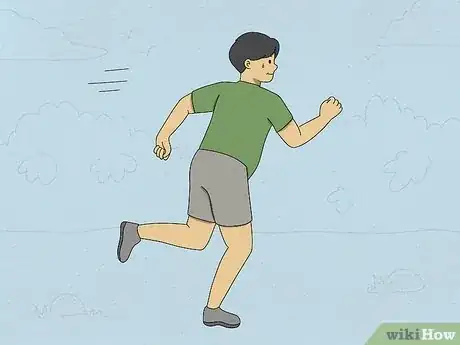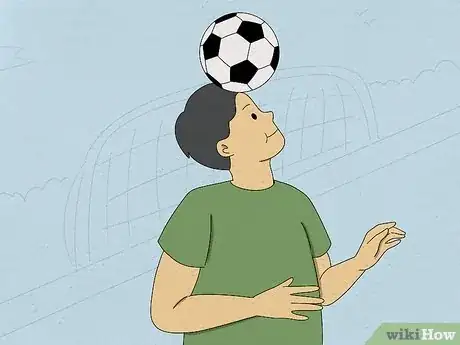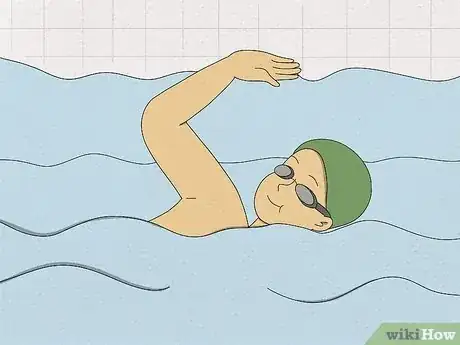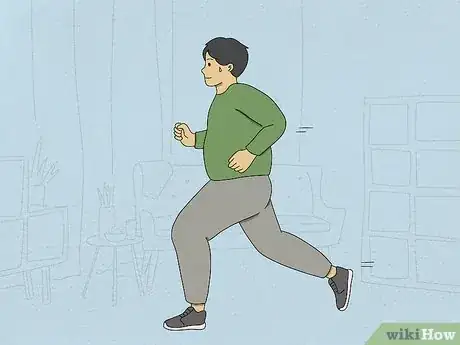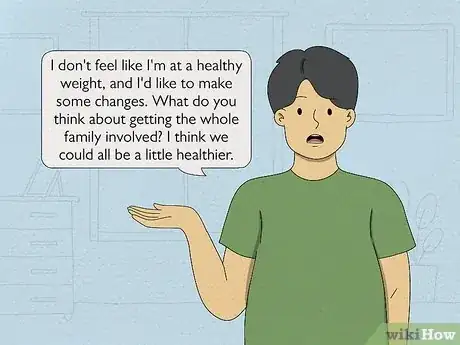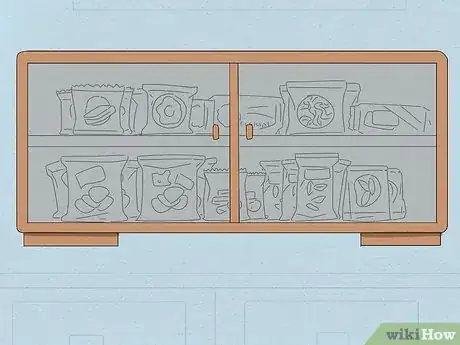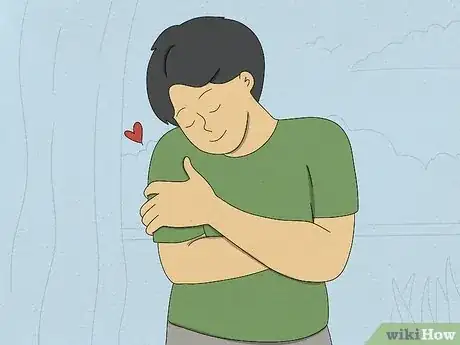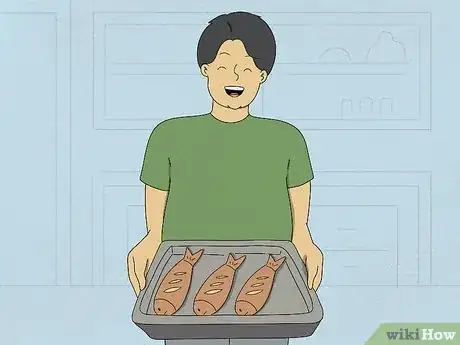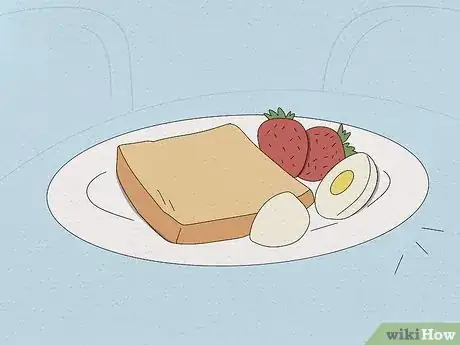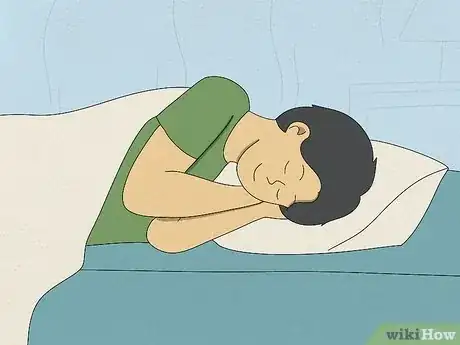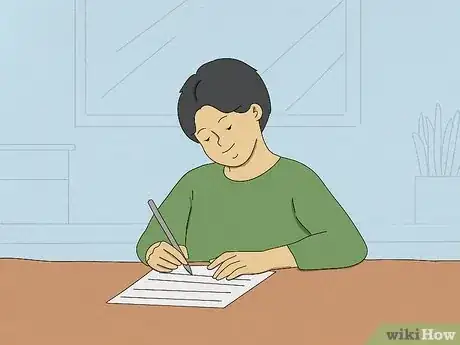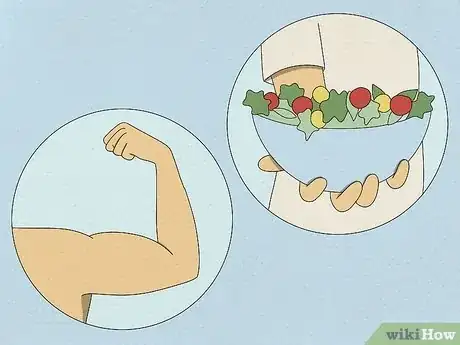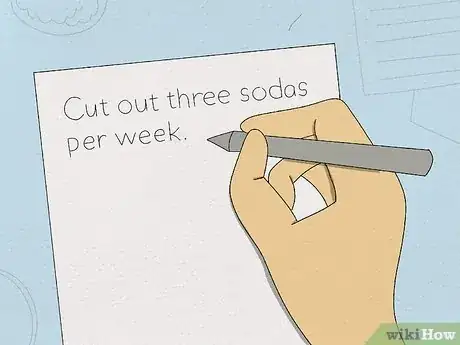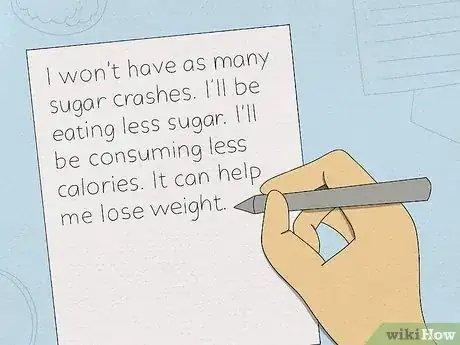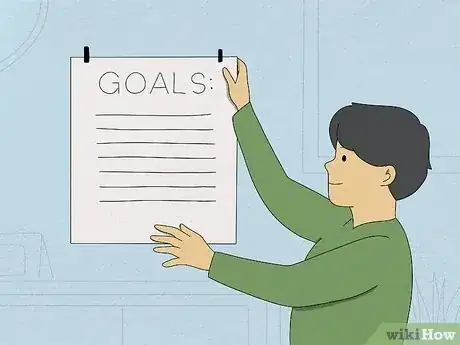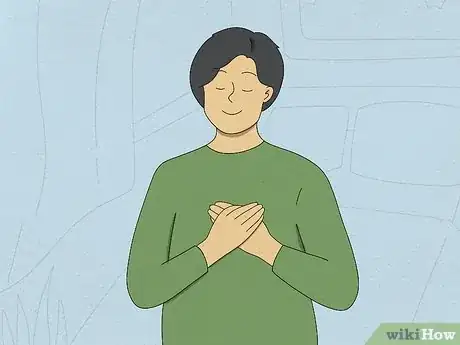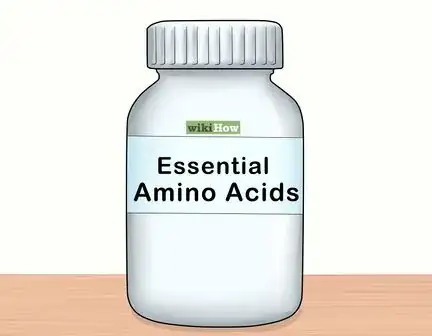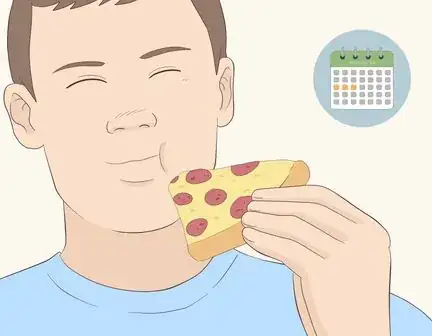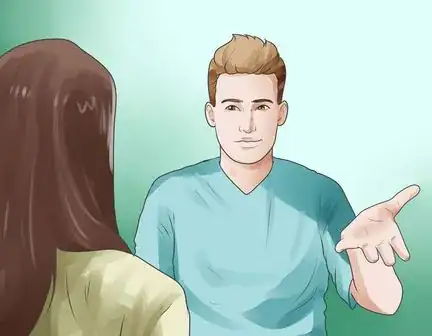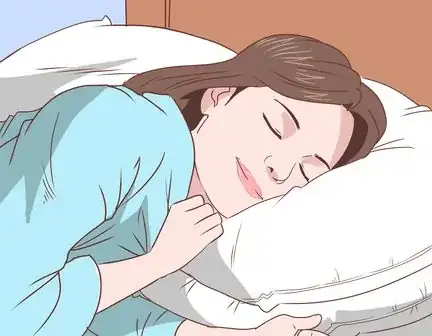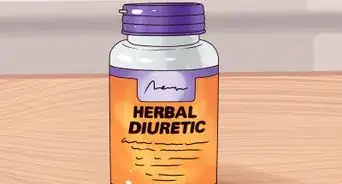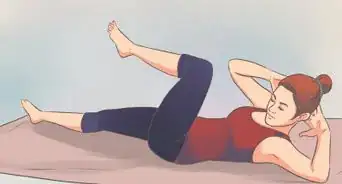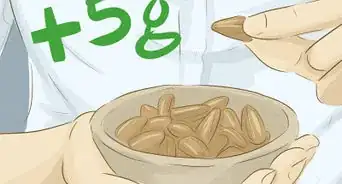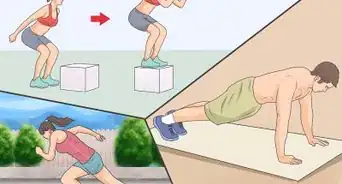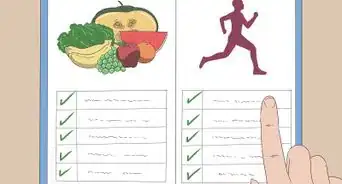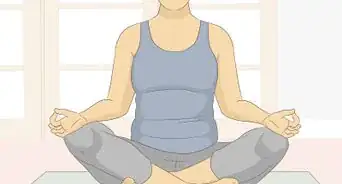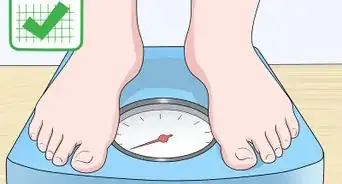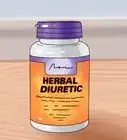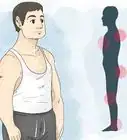This article was co-authored by Joel Warsh, MD. Dr. Joel Warsh is a board certified Pediatrician and the Owner & Founder of Integrative Pediatrics and Medicine in Los Angeles, California. With over a decade of experience, Dr. Warsh specializes in holistic and integrative medicine. He holds a Bachelor’s degree in Kinesiology and Health Sciences, a Master’s degree in Epidemiology and Community Health, and a Doctor of Medicine (MD) from Thomas Jefferson Medical College, where he was elected president of the Jefferson Pediatric Society. Dr. Warsh then completed his Pediatric Residency at Children’s Hospital of Los Angeles (CHLA), where he received the George Donnell Society Research Fellow.
There are 21 references cited in this article, which can be found at the bottom of the page.
wikiHow marks an article as reader-approved once it receives enough positive feedback. This article has 39 testimonials from our readers, earning it our reader-approved status.
This article has been viewed 466,218 times.
Losing weight can help you feel healthier and more confident. While it's not always easy when you're busy with school, homework, and hanging out with friends, losing weight is totally possible if you come up with a plan and stick with it.
Steps
Eating Right
-
1Ask your parents to take you to see a doctor. Before you make any changes to the way you eat, you should talk to a doctor. Your doctor can help you to determine how much (if any) weight you need to lose.[1] Your doctor can also help you make a healthy weight loss plan and track your progress.
- Your doctor may also refer you to a dietitian, who can design a healthy eating plan for you.
-
2Pick lean meats and other proteins. When you're deciding on a meal, stick to leaner meats. For instance, steak, hamburgers, and other red meats are often high in fat (though not always). Better choices are chicken, fish, and beans.[2]
- If you're a female from age 9 to 18 or a boy age 9 to 13, you should eat 5 ounces (140 g) equivalents each day. Males 14 to 18 should eat 6.5 ounces (180 g) equivalents.[3]
- These portions may be smaller than you're used to eating. For instance, 1 ounce (28 g) is equal to 1/3 or 1/4 of a can of tuna (depending on the size), 1 egg, or 1/3 to 1/4 of a hamburger patty (depending on the size). For beans, 1/4 of a cup is considered 1 ounce (28 g). So, for instance, if you ate a hamburger patty, that could be most of your protein for the day at 3 ounces (85 g) to 4 ounces (110 g). [4]
Advertisement -
3Load up on fruits and vegetables. If you're hungry often, try reaching for fruits and vegetables instead of prepackaged snacks. Snack on celery sticks with natural peanut butter, carrot sticks, or an apple instead of cookies, chips, or cake.[5]
- Other healthy options include tomato slices with cottage cheese or bell pepper strips with hummus.
- If you're in the 9 to 18 age group, you should be getting 1.5 cups (350 mL) to 2 cups (470 mL) of fruit a day.[6] Males 9 to 13 should get 2.5 cups (590 mL) of veggies, and those 14 to 18 should get 3 cups (710 mL). Females from 9 to 13 should get 2 cups (470 mL) a day, while those 14 to 18 should get 2.5 cups (590 mL).[7]
-
4Try to pick whole grains. Whole grains are foods like whole wheat pasta, whole wheat bread, whole cornmeal, brown rice, and oatmeal. On the other hand, refined grains are foods like white rice, white bread, and regular pasta. Whole grains are better for you because they are less refined and have more fiber. That means they'll keep you fuller for longer.[8]
- Females 9 to 13 should be eating 5 ounces (140 g) equivalents of grains each day, while girls 14 to 18 should be eating 6 ounces (170 g). Males 9 to 13 should eat 6 ounces (170 g), while 14- to 18-year-olds should eat 8 ounces (230 g). At least half of those grains should be whole grains.[9]
- 1 ounce (28 g) of grains is considered one slice of bread, 1.5 cups (350 mL) of cooked rice, 1.5 cups (350 mL) of cooked pasta, 1 cup (240 mL) of cereal.[10]
-
5Pick low-fat or no-fat dairy. Dairy is a good source of calcium and protein. It can also add flavor to your food. However, when picking dairy products, stick to low-fat or no-fat products, such as skim milk, low-fat cheese, and fat-free yogurt.[11]
- If you're in the 9-18 age range, you should be getting 3 cups (710 mL) of dairy a day. 1 cup (240 mL) can mean 1 cup (240 mL) of milk or yogurt, but it can also mean an 1 ounce (28 g) or 2 ounces (57 g) of hard or processed cheese.[12]
-
6Skip sugary drinks. Sugary drinks can add many calories to your day. Try to avoid drinks such as sports drinks, sodas, and juices. Instead, stick with water or even unsweetened herbal tea.[13] [14]
- If you don't like plain water, try adding a slice of orange or just a splash of juice to help give it flavor.
-
7Pay attention to how much you eat. It's tempting to eat until your plate is empty. However, if you pay attention to when you get full, you'll end up eating much less overall.[15]
-
8Avoid high-calorie foods. While eating a cookie every once in a while is fine, try to skip eating high-calorie foods every day. These foods include things like cookies, cakes, candies, chips, and burgers. Make these a treat, not something you eat each day.[16]
Getting Active
-
1Go play. You should be moving at least an hour a day. One way to get started is to give up screen time. Put down your phone. Step away from the computer. Get outside with friends and get active.[17]
- However, if you're not used to exercising, you can start smaller. Start with what you can do, and work up to more.
-
2Think about playing a sport. You don't need to be on your school's hugely competitive basketball team to play a sport. You can join an after school club that plays soccer, or join a league through your city's local parks and recreation department. Ask your parents to help you find a sport you enjoy. Playing a sport will get you moving on a regular basis, and you can have fun doing it.
-
3Try something new. Maybe you haven't liked exercising in the past because of what you've been doing. So maybe tennis isn't really your thing. You have plenty of other options. Try dancing, swimming, or jump roping, for instance. Even something like archery or horseback riding gets you out and moving.[18]
-
4Take active breaks. Even small actions can lead up to more activity throughout the day. For instance, when you take a break from studying, maybe you usually just listen to music for a bit or play a short game. Instead, get up and have a short dance party. Run downstairs or around the living room. Do some jumping jacks. Just adding these little bursts of activity can help.[19]
Practicing Healthy Habits
-
1Get your family involved. Most people could stand to be a little healthier. See if your family wants to get in on the action. Talk to your parents about making healthier changes for the whole family.[20]
- For instance, you could say to your parents, "I don't feel like I'm at a healthy weight, and I'd like to make some changes. What do you think about getting the whole family involved? I think we could all be a little healthier."
-
2Hide the junk food. If possible, it's best to keep junk food out of your house completely. However, if other people in your house still eat it, then you obviously can't do that. You can ask them to hide it away from you, though. Maybe the rest of the family could have a special cabinet for junk food that you don't go into, or maybe they could keep special snacks in their rooms, when possible. If you can't see it, you'll be less likely to eat it.[21]
-
3Forgive yourself. You're going to not do what you're supposed to sometimes. It's just human nature. The key is to do it in moderation. Try to do the right thing about 90 percent of the time, and you'll be fine. Beating yourself up isn't going to help the situation.
-
4Sit down for meals. It's best if you can sit down to a meal with your family, as you can all enjoy a healthy meal together. However, even just sitting down for a meal instead of eating standing up or in front of the television can help you pay attention to what you're eating and learn not to mindlessly plow through your food.[22]
- If your parents aren't much into cooking, maybe you can learn a few simple, healthy meals to cook for your family once and a while. For instance, baking fish in the oven is fairly simple, and perhaps you can learn how to boil vegetables. If you're interested, ask your parents if you can take a basic cooking class.
-
5Don't skip breakfast. Breakfast gives you enough energy to start your day. Plus, when you eat breakfast, you won't be as hungry later. That means you won't be as tempted to snack throughout the day.[23]
- Include a little bit of protein, whole grains, and a fruit or veggie if you can. For instance, try a bowl of oatmeal with some low-fat yogurt and blueberries. You could also have whole-grain toast with boiled eggs and a side of strawberries.[24]
-
6
-
7Take time to de-stress. Let's face it, life as a kid can be tough sometimes. You've got school and friends and family to deal with. But stress can also make you gain or keep on weight. You're not going to make stress go away completely, but you can learn ways to cope with it.[27]
- One way you can deal with stress is to write about it. Keep a journal, and at the end of the day, write about what's bothering you that day. Just writing it can help take a load off your mind.[28]
- You can also try meditation or deep breathing. It's not as crazy as it sounds.[29] Deep breathing is literally just taking a moment to focus on your breathing. Close your eyes. Focus only on your breathing. Breathe in slowly through your nose, counting to four in your head. Hold your breath for four counts, then breathe out slowly. Try to block out any other sensations or thoughts. Continue breathing this way for a couple of minutes until you feel yourself calming down.
Setting Goals
-
1Decide what you want to change. You now know what habits in your life you need to work on. One way to start changing is to set goals to help you achieve that. For instance, maybe you want to eat healthier or move more.
-
2Break them down into manageable steps. A goal like "eat healthier" is much too big. You probably have a vague idea of what to do, but it's not actually something you can put into action right now. Instead, try goals that are actions instead.[30]
- For instance, instead of "eat healthier," you could try goals such as "trade one sweet snack for a fruit every day," "eat three helpings of vegetables each day," or "cut out three sodas per week."
-
3Write down what would be good about your goal. Telling yourself what will be good can help you stick to your goals. For instance, if your goal is to "cut out three sodas per week," you could write, "I won't have as many sugar crashes. I'll be eating less sugar. I'll be consuming less calories. It can help me lose weight."[31]
-
4Remind yourself of your goals. Put your goals up where you can see them. Say them out loud each morning. Making sure you see what your goals are can help you stick to them.[32]
-
5Understand it takes patience. You won't change all your habits overnight. Even changing one habit can take a while. Just keep working at it, and eventually, you'll have new, healthier habits. Once you've changed one or two habits, you can work on other ones.[33]
Lose Weight the Right Way with this Expert Series
Expert Q&A
-
QuestionHow can an 11 year old lose weight?
 Joel Warsh, MDDr. Joel Warsh is a board certified Pediatrician and the Owner & Founder of Integrative Pediatrics and Medicine in Los Angeles, California. With over a decade of experience, Dr. Warsh specializes in holistic and integrative medicine. He holds a Bachelor’s degree in Kinesiology and Health Sciences, a Master’s degree in Epidemiology and Community Health, and a Doctor of Medicine (MD) from Thomas Jefferson Medical College, where he was elected president of the Jefferson Pediatric Society. Dr. Warsh then completed his Pediatric Residency at Children’s Hospital of Los Angeles (CHLA), where he received the George Donnell Society Research Fellow.
Joel Warsh, MDDr. Joel Warsh is a board certified Pediatrician and the Owner & Founder of Integrative Pediatrics and Medicine in Los Angeles, California. With over a decade of experience, Dr. Warsh specializes in holistic and integrative medicine. He holds a Bachelor’s degree in Kinesiology and Health Sciences, a Master’s degree in Epidemiology and Community Health, and a Doctor of Medicine (MD) from Thomas Jefferson Medical College, where he was elected president of the Jefferson Pediatric Society. Dr. Warsh then completed his Pediatric Residency at Children’s Hospital of Los Angeles (CHLA), where he received the George Donnell Society Research Fellow.
Board Certified Pediatrician This process isn't really going to be all that unique from age to age. It's going to come down to eating healthy and staying active. There are no tricks and hacks here, you just have to make sure that you're making healthy decisions!
This process isn't really going to be all that unique from age to age. It's going to come down to eating healthy and staying active. There are no tricks and hacks here, you just have to make sure that you're making healthy decisions! -
QuestionHow can you tell if a food is going to be healthy or not?
 Joel Warsh, MDDr. Joel Warsh is a board certified Pediatrician and the Owner & Founder of Integrative Pediatrics and Medicine in Los Angeles, California. With over a decade of experience, Dr. Warsh specializes in holistic and integrative medicine. He holds a Bachelor’s degree in Kinesiology and Health Sciences, a Master’s degree in Epidemiology and Community Health, and a Doctor of Medicine (MD) from Thomas Jefferson Medical College, where he was elected president of the Jefferson Pediatric Society. Dr. Warsh then completed his Pediatric Residency at Children’s Hospital of Los Angeles (CHLA), where he received the George Donnell Society Research Fellow.
Joel Warsh, MDDr. Joel Warsh is a board certified Pediatrician and the Owner & Founder of Integrative Pediatrics and Medicine in Los Angeles, California. With over a decade of experience, Dr. Warsh specializes in holistic and integrative medicine. He holds a Bachelor’s degree in Kinesiology and Health Sciences, a Master’s degree in Epidemiology and Community Health, and a Doctor of Medicine (MD) from Thomas Jefferson Medical College, where he was elected president of the Jefferson Pediatric Society. Dr. Warsh then completed his Pediatric Residency at Children’s Hospital of Los Angeles (CHLA), where he received the George Donnell Society Research Fellow.
Board Certified Pediatrician In general, if it grew in the ground and it hasn't been coated in synthetic chemicals, it's probably good for you. If it's filled with refined sugar, chemicals, dyes, or preservatives, it's likely not going to be good for you. Just make sure you read the labels carefully and you should be able to assess whether it's going to be healthy or not.
In general, if it grew in the ground and it hasn't been coated in synthetic chemicals, it's probably good for you. If it's filled with refined sugar, chemicals, dyes, or preservatives, it's likely not going to be good for you. Just make sure you read the labels carefully and you should be able to assess whether it's going to be healthy or not. -
QuestionFor how many hours a day should a 10-year-old exercise?
 Shari Forschen, NP, MAShari Forschen is a Registered Nurse at Sanford Health in North Dakota. Shari has worked in healthcare since 1996 and her expertise lies in acute care bedside nursing on a medical oncology floor. She received her degree from Medcenter one College of Nursing in 2003 and her Family Nurse Practitioner Masters from the University of North Dakota in 2014. Shari is a member of the American Nurses Association.
Shari Forschen, NP, MAShari Forschen is a Registered Nurse at Sanford Health in North Dakota. Shari has worked in healthcare since 1996 and her expertise lies in acute care bedside nursing on a medical oncology floor. She received her degree from Medcenter one College of Nursing in 2003 and her Family Nurse Practitioner Masters from the University of North Dakota in 2014. Shari is a member of the American Nurses Association.
Master's Degree, Nursing, University of North Dakota 10 year olds are recommend to exercise for 60 minutes a day.
10 year olds are recommend to exercise for 60 minutes a day.
References
- ↑ http://teenshealth.org/en/teens/lose-weight-safely.html
- ↑ http://www.cdc.gov/healthyweight/children/index.html
- ↑ https://www.choosemyplate.gov/eathealthy/protein-foods
- ↑ https://www.choosemyplate.gov/eathealthy/protein-foods
- ↑ http://www.cdc.gov/healthyweight/children/index.html
- ↑ http://www.choosemyplate.gov/fruit
- ↑ https://www.choosemyplate.gov/eathealthy/vegetables
- ↑ http://www.choosemyplate.gov/grains
- ↑ https://www.choosemyplate.gov/eathealthy/protein-foods
- ↑ https://www.choosemyplate.gov/eathealthy/protein-foods
- ↑ http://www.choosemyplate.gov/dairy
- ↑ http://www.choosemyplate.gov/dairy
- ↑ http://teenshealth.org/teen/food_fitness/dieting/lose_weight_safely.html#
- ↑ Joel Warsh, MD. Board Certified Pediatrician. Expert Interview. 2 February 2021.
- ↑ http://teenshealth.org/teen/food_fitness/dieting/lose_weight_safely.html#
- ↑ http://www.niddk.nih.gov/health-information/health-topics/weight-control/helping-overweight-child/Pages/helping-your-overweight-child.aspx
- ↑ Joel Warsh, MD. Board Certified Pediatrician. Expert Interview. 2 February 2021.
- ↑ http://www.cdc.gov/healthyweight/children/index.html
- ↑ http://www.nhlbi.nih.gov/health/educational/wecan/get-active/index.htm
- ↑ http://teenshealth.org/teen/food_fitness/dieting/lose_weight_safely.html#
- ↑ Joel Warsh, MD. Board Certified Pediatrician. Expert Interview. 2 February 2021.
- ↑ https://www.nlm.nih.gov/medlineplus/ency/patientinstructions/000354.htm
- ↑ http://www.mayoclinic.org/healthy-lifestyle/tween-and-teen-health/in-depth/teen-weight-loss/art-20045224
- ↑ http://www.mayoclinic.org/healthy-lifestyle/tween-and-teen-health/in-depth/teen-weight-loss/art-20045224
- ↑ http://www.mayoclinic.org/healthy-lifestyle/adult-health/expert-answers/sleep-and-weight-gain/faq-20058198
- ↑ http://www.mayoclinic.org/healthy-lifestyle/adult-health/expert-answers/how-many-hours-of-sleep-are-enough/faq-20057898
- ↑ https://www.psychologytoday.com/blog/the-mindful-self-express/201308/why-we-gain-weight-when-we-re-stressed-and-how-not
- ↑ https://www.psychologytoday.com/blog/the-mindful-self-express/201308/why-we-gain-weight-when-we-re-stressed-and-how-not
- ↑ http://www.mayoclinic.org/healthy-lifestyle/stress-management/in-depth/relaxation-technique/art-20045368?pg=2
- ↑ http://kidshealth.org/teen/drug_alcohol/getting_help/goals_tips.html
- ↑ http://www.cyh.com/HealthTopics/HealthTopicDetailsKids.aspx?p=335&id=2368
- ↑ http://kidshealth.org/teen/drug_alcohol/getting_help/goals_tips.html
- ↑ http://kidshealth.org/teen/drug_alcohol/getting_help/goals_tips.html
About This Article
To lose weight as a kid, drink water instead of juice or soda since sugary drinks can make you gain weight. Also, try to snack on fruits and vegetables instead of chips or cookies, and go with whole wheat bread and pasta instead of white bread and regular pasta. Don't worry if you don't like the taste at first - you'll get used to it soon! You can also lose weight by doing things like playing outside with your friends, joining an after-school sports club, or picking up a new active hobby like swimming or dancing. For tips from our Dietician reviewer on how to set weight loss goals that you can achieve, scroll down!
